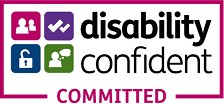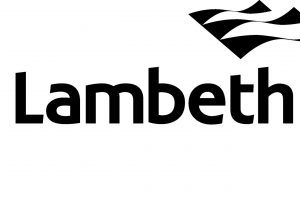05th October
Introducing Higher Technical Qualifications – what they are and how they can help adults upskill, retrain, and gain a qualification
Higher Technical Qualifications are new qualifications introduced by the government to boost skills and opportunities for adults.
Informed with employers’ input, HTQs offer the latest industry-relevant training which employers have said they need. They offer students the right training, knowledge, and skills to succeed in the workplace.
We met up with Melanie Butcher, Higher Technical Qualifications Lead at Morley, to learn more about HTQs and how they can influence adult education and career ambitions.
Q: What are Higher Technical Qualifications?
Mel: Higher Technical Qualifications (HTQs) are new Level 4 and Level 5 qualifications developed by awarding bodies in collaboration with employers to equip students with the necessary training, knowledge, and skills they need to succeed in the workplace.
As part of the government’s higher technical education reforms, HTQs serve as a viable alternative to apprenticeships or degrees, filling the gap between A levels or T Levels and degrees.
From September 2024, Morley will introduce a range of Higher Technical Qualifications (HTQs) and additional fully – funded Level 4 and Level 5 courses designed to offer a practical skill – based approach to careers in business, finance and healthcare, ensuring students are equipped with the sought-after skills that employers are looking for.
Q. Could you tell us more about what Level 4 and Level 5 qualifications are…
Mel: Of course, higher education can be confusing with its different levels and titles. Education is traditionally measured in levels beginning at entry and working up so for instance a student studying A levels would be at Level 3.
Level 4 and 5 are higher education levels that would encompass studying at a higher level at college or university, for example on a degree or postgraduate level of study. HTQs are classed as Level 4 and 5 dependent on the course.
A good place to find out more is at gov.uk What qualification levels mean: England, Wales and Northern Ireland – GOV.UK (www.gov.uk)
Q: Who can benefit from HTQs?
HTQs are tailored for individuals aged 18 and above seeking to enhance their skill set, pursue new career paths, or attain formal qualifications.
Q: How are HTQs delivered?
All our HTQs will be a blend of classroom-based sessions in college, live webinars and interactive e-learning, with an emphasis on developing practical and transferable skills for work-based scenarios.
Q: What financial support is available for HTQ students?
Mel: Students may apply for tuition fee loans, maintenance loans, and grants depending on their circumstances and the type of HTQ being pursued.
These loans and grants can help cover tuition fees, living costs, and other educational expenses.
You can find out more information by visiting www.gov.uk/get-undergraduate-student-loan.
Q: What HTQ courses are offered at Morley?
Mel: At Morley, we are offering the following HTQ courses:
- HND in Leadership and Management for England (HTQ)
- HND Healthcare Professions’ Support for England (HTQ)
- OTHM L4 Diploma in Project Management
- OTHM L4 Diploma in Accounting and Business
Q: Tell us more about the free fully – funded module?
Mel: Yes, and this is really exciting… we are able to offer learners a free module, fully – funded by the government.
Learners can select a free module of their choice from the Leadership and Management HTQ course. The free modules on key business topics have all been designed to equip learners with the knowledge and practical skills needed in leadership and management roles across a range of different sectors.
They can choose one of the following modules:
- Module 1: Human Resources and Leadership & Management L4
- Module 2: Accounting Principles and Project Management L4
- Module 3: Business Strategy, Communications and Relationship Management L5
- Module 4: Business information Technology Systems, Data Analytics, and Insights L5
These modules provide learners the chance to explore the Leadership and Management course while earning a Certificate of Unit Credit (CoUC), paving the way for promotion, career development and progression to further HE study such as the full Leadership and Management HTQ course.
Q. This all sounds great. So, Mel, who do people contact for more information?
Mel: For more information on our HTQ courses, please contact me by emailing Melanie.Butcher@morleycollege.ac.uk or my colleague, Gurdeep Lakhanpal, Gurdeep.Lakhanpal@morleycollege.ac.uk









